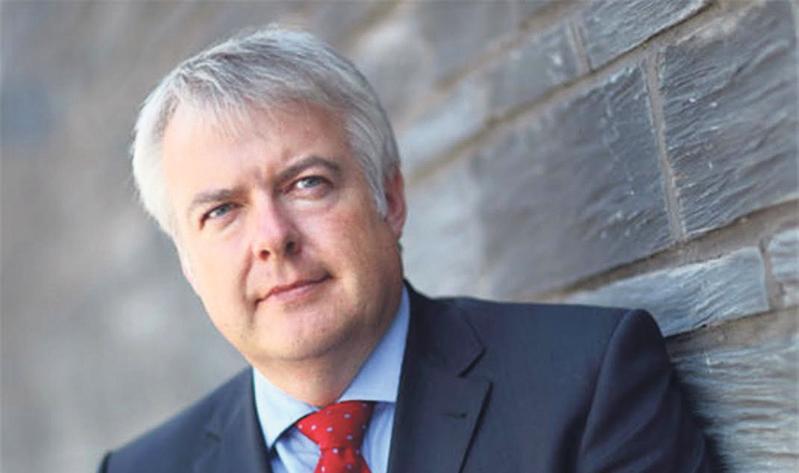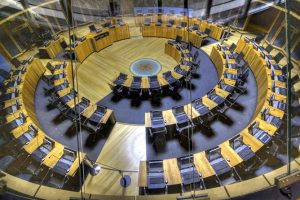THE EVER-INCREASING size of the Welsh Government ‘pay-roll vote’ is damaging the effectiveness of democracy in Wales according to the Welsh Conservatives.
Following Carwyn Jones’ last reshuffle, twenty one Labour Assembly Members now hold remunerated positions – be it ministerial, commission or committee chair posts – which currently represents a staggering 75 per cent of the governing party in Wales. In Scotland, the percentage of SNP members in similar paid-up positions is closer to 50 per cent.
The pay-roll vote and democratic deficit intensifies in Wales with the inclusion of Independent AM, Dafydd Elis-Thomas, and Lib Dem AM, Kirsty Williams, as Welsh government ministers.
Leader of the Welsh Conservatives, Andrew RT Davies, has said the ‘bloated’ government pay-roll vote is damaging the heart of democracy in Wales.
He said: “The ever-increasing and bloated size of the Welsh Government ‘pay-roll vote’ is damaging the effectiveness and heart of democracy in Wales.
“As an opposition party, we work around the clock to hold Carwyn Jones and his chaotic government to account, but the Welsh Parliament is unquestionably being harmed by the ever-shrinking voice of genuine backbenchers.
“By bringing three quarters of his Labour members into the ‘paid-up tent’, the First Minister is effectively closing down scrutiny of his actions and those of his government.
“A tired government of 18 years standing and devoid of new ideas is seeking to cover-up its numerous failures by increasing the democratic deficit in Wales – people and communities deserve better and for that we need to start with a fully functioning democracy and smaller government pay-roll.”
‘Welsh Government pay-roll vote’
Labour Cabinet Secretaries and Ministers (12):
Carwyn Jones – First Minister
Ken Skates – Cabinet Secretary for Economy and Transport
Vaughan Gething – Cabinet Secretary for Health and Social Services
Huw Irranca-Davies – Minister for Children and Social Care
Mark Drakeford – Cabinet Secretary for Finance
Alun Davies – Cabinet Secretary for Local Government and Public Services
Rebecca Evans – Minister for Housing and Regeneration
Lesley Griffiths – Cabinet Secretary for Energy, Planning and Rural Affairs
Hannah Blythyn – Minister for Environment
Eluned Morgan – Minister for Welsh Language and Lifelong Learning
Julie James – Leader of the House and Chief Whip, with responsibility for digital infrastructure and equalities
Jeremy Miles – Counsel General
Other Welsh Government Ministers (2):
Dafydd Elis Thomas – Minister for Culture, Tourism and Sport
Kirsty Williams – Cabinet Secretary for Education
DPO and Committee Chairs (7):
Ann Jones – Deputy Presiding Officer and Chair of Committee for the Scrutiny of the First Minister
Lynne Neagle – Children, Young People and Education Committee
Mike Hedges – Climate Change, Environment and Rural Affairs Committee
Mick Antoniw – Constitutional and Legislative Affairs Committee
John Griffiths – Equality, Local Government and Communities Committee
David Rees – External Affairs and Additional Legislation Committee
Jane Bryant – Standards of Conduct Committee
Other roles (2):
Joyce Watson – Commissioner – Equalities and the Commission as the employer of Assembly staff
Julie Morgan – Chair of the All-Wales Programme Monitoring Committee (EU funding oversight)
During the last Assembly term, the scope of the payroll vote was demonstrated when a Labour AM, Jenny Rathbone, was sacked by Carwyn Jones as Chair of the All-Wales PMC for breaching ‘collective responsibility’ by speaking out against a policy decision made by the Welsh Government – despite fulfilling a number of supposedly ‘backbench’ roles such as sitting on Assembly Committees as a Labour representative.
While Mr Davies’ point has merit, in the Westminster parliament the total number of ministers in government posts in June 2017, following the general election and reshuffle of Theresa May’s Government, was 118.
This was the same number as under the Cameron administration in May 2015, but more than all other post-1979 general elections bar 2010.
As a point of comparison, there were sixty government ministers in 1990 and India, with a population of over 1.3bn, has under eighty.
There are nine unpaid ministers in Theresa May’s June 2017 Government.
The Prime Minister is able to invite Ministers to attend Cabinet without making them Cabinet Ministers. There are five people in Theresa May’s June 2017 Government who attend Cabinet without being full Cabinet Ministers.
There is no formal definition of the payroll vote. It is generally considered to refer to all those who hold a role in the administration, whether paid or unpaid. This includes senior roles, as well as more junior roles including Parliamentary Private Secretaries (PPSs).
The proportion of Members of the House of Commons who have been part of the payroll vote has varied from 19-22% between 1979 and 2017. More recently, the Conservative Government rigged the Select Committee system, which is supposed to scrutinise the government, by appointing nine members of its payroll vote to select committees.
There have been calls for the size of the payroll vote to be limited.
Most recently, in a 2011 report, the Public Administration Select Committee noted that the proportion of those holding government posts would be exacerbated by the proposed reduction in the size of the House of Commons from 650 to 600 following the forthcoming Boundary Review. Their recommendations included cutting the number of PPSs to one per Government Department and that the Ministerial and Other Salaries Act 1975 should be seen as imposing a strict limit on paid and unpaid ministers.


















Add Comment